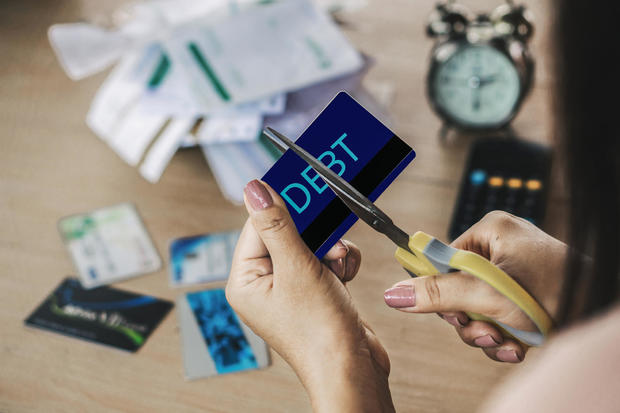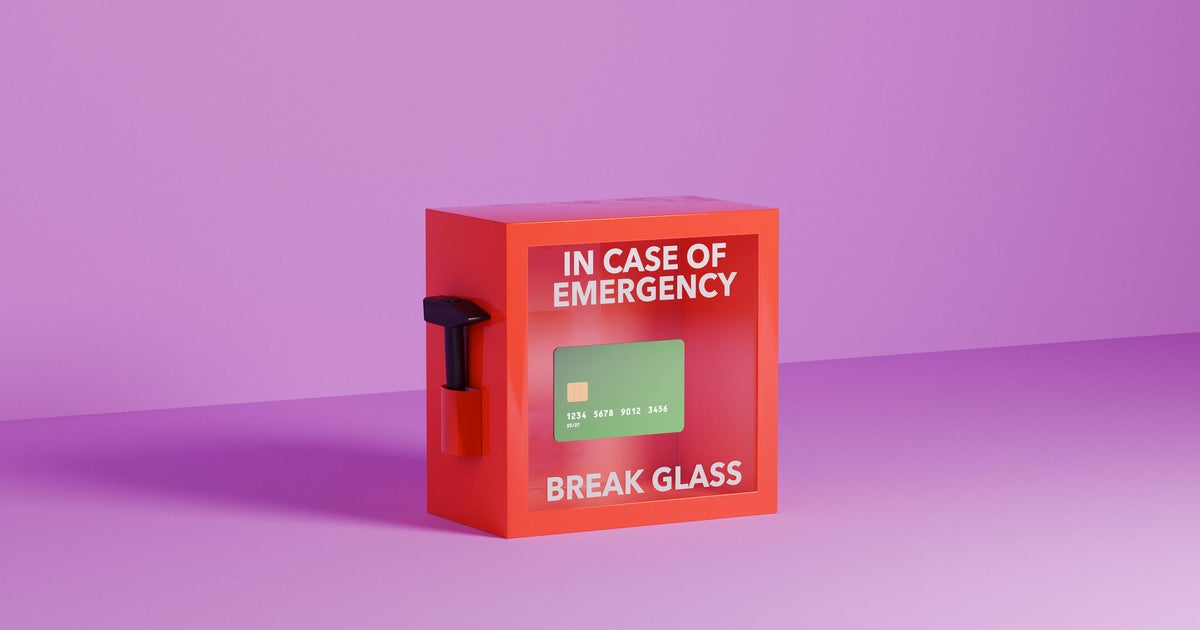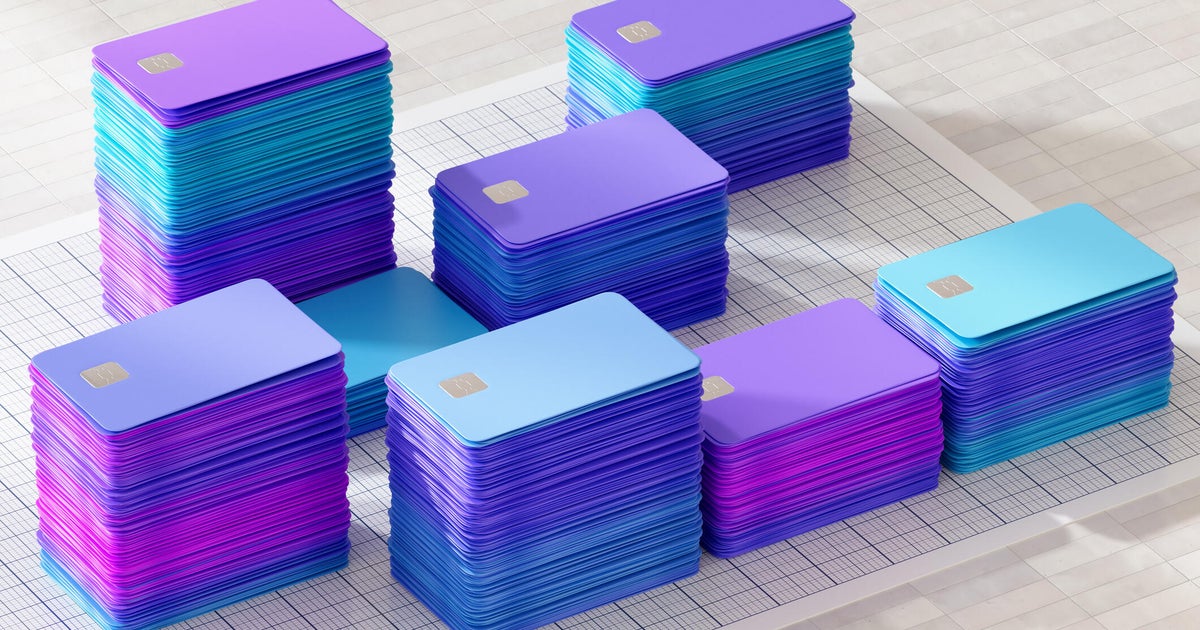5 smart alternatives to debt consolidation loans
If you owe money on your credit cards, you may be looking for solutions to get rid of that high-interest debt. That makes sense, especially in today's economic landscape, in which interest rates are elevated and persistent inflation is putting pressure on many people's budgets. And, right now, the average credit card rate is over 21%, so between the compounding interest charges and higher costs of consumer goods, most people need to get rid of that type of debt.
In turn, you may be considering taking out a debt consolidation loan, which, in many cases, can be a smart solution to getting rid of high-rate debt. These types of loans can simplify your finances by combining multiple debts into one monthly payment. And, they typically have lower interest rates compared to credit cards, so they can cut down on the interest costs, too.
However, debt consolidation loans aren't the right solution for everyone. For starters, you have to apply and be approved for this type of loan, and not everyone will qualify. And, there are risks, like taking on an even larger debt load and damaging your credit if you miss payments. Luckily, debt consolidation loans aren't your only option. In fact, there are several smart alternatives to help you regain control of your finances.
Find out more about your debt relief options online today.
5 smart alternatives to debt consolidation loans
Here are some of the top debt consolidation loan alternatives to consider:
A debt management plan
A debt management plan is a formal agreement between you and your creditors to pay off your unsecured debts at reduced interest rates and fees. These plans are typically set up and administered by credit counseling agencies or debt relief services.
With a debt management plan, you make a monthly payment to the debt relief company, which then distributes the money to your creditors. Creditors are often willing to approve these plans because they'd rather receive a lesser payment on what you owe than get nothing if you file for bankruptcy.
The downside is that a debt management plan can negatively impact your credit score, at least initially, and most require you to close all of your credit card accounts. However, if you successfully complete the plan, it can help improve your credit over time.
Ready to get rid of your high-rate debt? Learn more about the debt relief solutions available to you here.
A home equity loan or HELOC
If you have built up significant home equity, you may be able to tap into it through a home equity loan or a home equity line of credit (HELOC). These secured loans typically offer much lower interest rates than credit cards or personal loans. And, right now, the average homeowner has a lot of home equity, about $193,000 of which can be borrowed against for debt consolidation or other purposes. So, if you're looking for an alternative to debt consolidation loans, this could be a great time to consider home equity.
The obvious risk is that your home serves as collateral, so failing to repay the home equity loan or HELOC could lead to foreclosure. There are also fees and closing costs to consider. But between the average homeowner having high amounts of equity and the low average interest rates that these products offer, utilizing a home equity loan or HELOC could make a lot of sense today.
A debt settlement program
With debt settlement, you'll negotiate with your creditors to accept a lump sum payment that's lower than the total amount you owe. This option is typically reserved for those who are severely delinquent on their debts and facing potential bankruptcy.
You can try to negotiate settlements yourself or hire a debt settlement company to do it for you. These companies will instruct you to stop making payments to your creditors and instead save funds in a dedicated account. Once you've accumulated enough money, they'll attempt to reach settlement agreements with your creditors.
While debt settlement can provide significant debt relief, it comes with risks. Your credit score will take a major hit, and you may owe taxes on any forgiven debt amounts. Creditors are also under no obligation to accept your settlement offers.
A balance transfer credit card
If you have good to excellent credit, a balance transfer credit card can be a powerful tool for debt consolidation. These cards offer a 0% (or very low) APR promotional period, typically ranging from 12 to 21 months, on balances transferred from other creditors. This gives you a window of time to pay off your debt without worrying about interest, as long as you make your minimum payments on time.
However, many of these cards charge fees for balance transfers, which can negate some of the savings you would have otherwise gained. The key is finding a card with no balance transfer fee or a low fee of around 3%. You should also have a plan to pay off the entire balance before the promotional APR expires and the regular APR kicks in.
A cash-out refinance
For homeowners with excellent credit, cash-out refinancing is another option for consolidating debt. This involves refinancing your current mortgage for more than you owe and taking the difference in cash to pay off other debts. Like home equity loans, your home serves as collateral for the debt. You'll also pay closing costs, which can amount to thousands of dollars.
And, a cash-out refi may not make much sense in today's rate environment, where mortgage rates are elevated — and many homeowners have mortgage loans with very low rates. So, refinancing to a mortgage loan with a higher rate than what you currently have will cost a lot more in the long run.
In turn, one of the alternatives listed above could make more sense than a cash-out refi in today's economy.
The bottom line
Regardless of the debt consolidation alternative you choose, the key to long-term success is changing the overspending habits that led to your debt problems in the first place. Once you have a plan in place for tackling your high-interest debt, you should work to create a budget, build an emergency fund and live within your means to avoid repeating the cycle of debt in the future.




